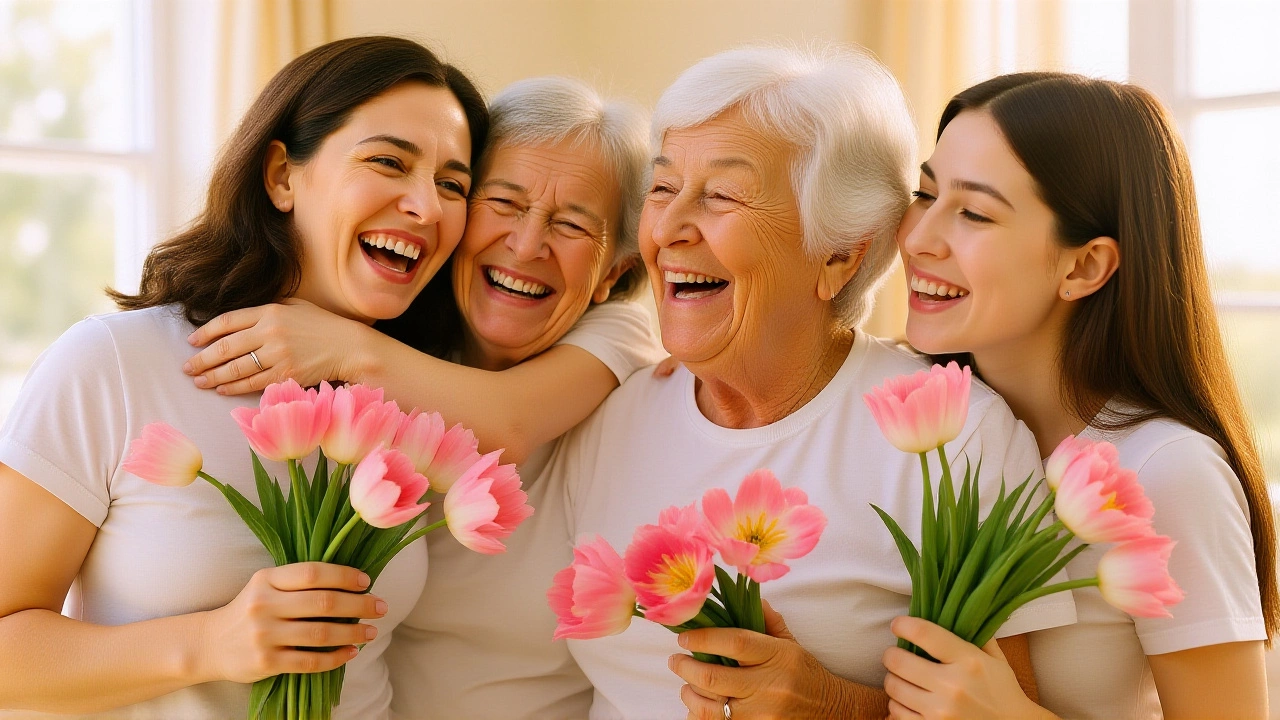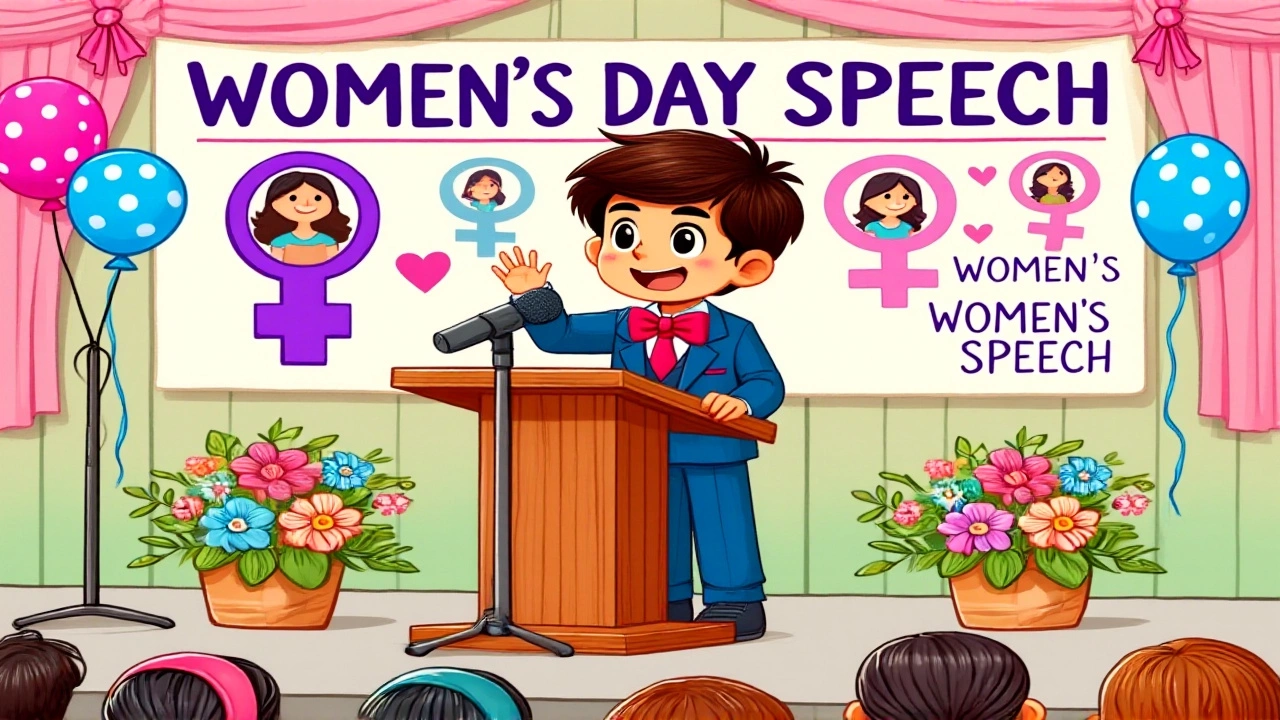International Women's Day 2025: 'Accelerate Action' as Global Gender Parity Deadline Hits 2158

Nov, 20 2025
On March 8, 2025, millions around the world marked International Women's Day not just with celebrations, but with urgent calls to action—because the numbers don’t lie. At the current pace, full gender equality won’t arrive until 2158. That’s not a typo. That’s five generations from now. The International Women's Day organization launched its official theme, #AccelerateAction, while the Office of the United Nations High Commissioner for Human Rights (OHCHR) countered with "Her Rights, Our Future, Right Now," a phrase that landed like a hammer on complacency. This wasn’t just another March 8 rally. It was a reckoning.
Why 2158 Is a Wake-Up Call
The World Economic Forum’s data, cited by International Women's Day, showed that progress on closing the global gender gap has stalled in key areas: economic participation, political representation, and pay equity. In 2024, women held just 28% of parliamentary seats worldwide. In the corporate world, only 10% of Fortune 500 CEOs are women. And in low-income countries, girls still face barriers to education that boys never do. "We’ve been told to be patient," said Volker Türk, UN High Commissioner for Human Rights. "But patience is a luxury when your daughter’s future is being auctioned off in slow motion."The Giving Movement: Turning March 8 Into a Global Fundraiser
This year, International Women's Day pushed beyond speeches and hashtags. It launched the IWD GIVING initiative—a coordinated global push to turn March 8 into one of the largest single-day charitable events in history. From Nairobi to New Delhi, organizations were urged to host fundraising drives for women-led NGOs, shelters, legal aid clinics, and girls’ STEM programs. In the U.S., over 1,200 nonprofits participated; in Brazil, corporate giants like Itaú Unibanco pledged 10% of all March 8 sales to gender equity funds. "It’s not about flowers anymore," said activist and journalist Gloria Steinem, whose quote was featured in campaign materials: "The story of women’s struggle for equality belongs to no single feminist nor to any one organization but to the collective efforts of all who care about human rights."A Historical Thread: From Soviet Decrees to Suffrage Oaks
The roots of International Women's Day stretch back over a century. In 1918, Glasgow activists planted the Suffrage Oak to commemorate women gaining the vote in the UK. A plaque beside it still reads: "This oak tree was planted by Women’s Suffrage Organisations in Glasgow on April 20, 1918." Then came the 1965 Soviet decree, which turned March 8 into a state holiday—celebrating women’s labor and wartime heroism, but not their rights. Fast forward to 2015, when the 20th anniversary of the Beijing Declaration and Platform for Action sparked global protests, including a viral Tinder campaign in Australia with the stark message: "You pick your partner. Many women aren’t given the choice."Grassroots Sparks: Jakarta to Johannesburg
The movement isn’t confined to UN offices. In Jakarta, the first Jakarta Women's March in 2017 delivered eight demands to the government: an end to violence, access to healthcare, protection of religious minorities, and environmental justice. Last year, in Johannesburg, a coalition of female entrepreneurs launched a microloan fund for women in informal markets. "They don’t need charity," said organizer Thandi Mokoena. "They need systems that don’t break them before they start."
What’s Next? The 2026 Countdown Begins
With the 2025 campaign closing, attention is already turning to 2026. The International Women's Day organization has hinted that next year’s theme will focus on digital rights and AI bias—areas where women are being systematically excluded from design tables. Meanwhile, the OHCHR is pushing member states to adopt binding gender impact assessments for all new legislation. "We’re not asking for miracles," said Volker Türk. "We’re asking for accountability. And if we get that, we might not have to wait until 2158."Why This Matters to Everyone
Gender equality isn’t a "women’s issue." It’s an economic one. The World Economic Forum estimates that closing the gender gap could add $12 trillion to global GDP by 2025. It’s a social one—children raised in gender-equal households are more likely to be emotionally intelligent and less violent. And it’s a moral one. If we can’t fix this now, what kind of world are we leaving behind?Frequently Asked Questions
Why is gender equality taking so long to achieve?
Progress is slow because structural barriers—like unequal pay, lack of childcare access, and underrepresentation in leadership—are deeply embedded in legal, economic, and cultural systems. Even where laws exist, enforcement is weak. The World Economic Forum estimates that without aggressive policy shifts, it will take until 2158 to close the global gender gap in economic participation alone.
What is the IWD GIVING initiative, and how does it work?
The International Women's Day GIVING initiative is a global campaign encouraging individuals, businesses, and nonprofits to direct donations toward women-focused organizations on March 8. In 2025, over 1,500 groups participated—from small rural cooperatives in Nepal to major foundations in the U.S.—raising an estimated $2.3 million in a single day for education, health, and legal aid programs.
How did the 2025 themes differ from 2024’s '#InspireInclusion'?
While 2024’s theme focused on representation and belonging, 2025’s themes—'#AccelerateAction' and 'Her Rights, Our Future, Right Now'—shifted to urgency and systemic change. The 2024 campaign asked people to welcome women into existing spaces. The 2025 campaign demanded those spaces be redesigned, funded, and held accountable. It moved from symbolism to substance.
What role do governments play in advancing these goals?
Governments hold the power to enforce laws, allocate budgets, and set standards. The Office of the United Nations High Commissioner for Human Rights is now urging all member states to implement gender impact assessments for every new law or policy. Without this, even well-intentioned programs often fail women in marginalized communities.
Can individual actions really make a difference?
Absolutely. In 2025, small acts—like donating to a local women’s shelter, hiring a woman-owned vendor, or calling out biased language at work—collectively moved the needle. The International Women's Day GIVING initiative raised $2.3 million in one day, mostly from donations under $50. Change doesn’t always come from the top. Sometimes, it comes from a thousand quiet acts of solidarity.
What’s the connection between gender equality and climate change?
Women, especially in developing nations, are on the frontlines of climate disasters—yet rarely included in decision-making. Studies show that when women lead environmental initiatives, outcomes are more sustainable and community-focused. The 2017 Jakarta Women’s March, for example, linked gender rights to environmental protection, demanding clean water and safe waste management—issues that directly impact women’s health and livelihoods.